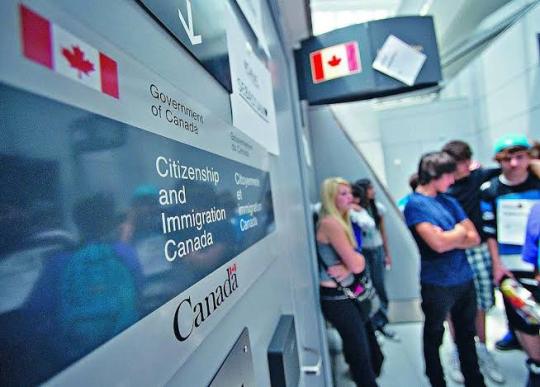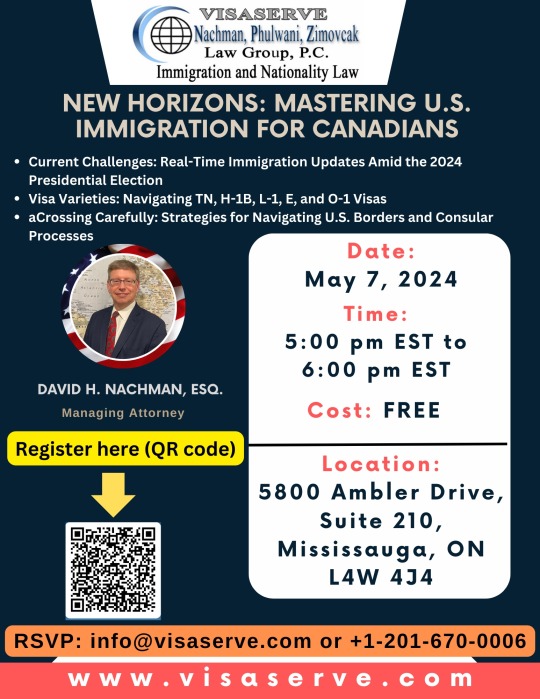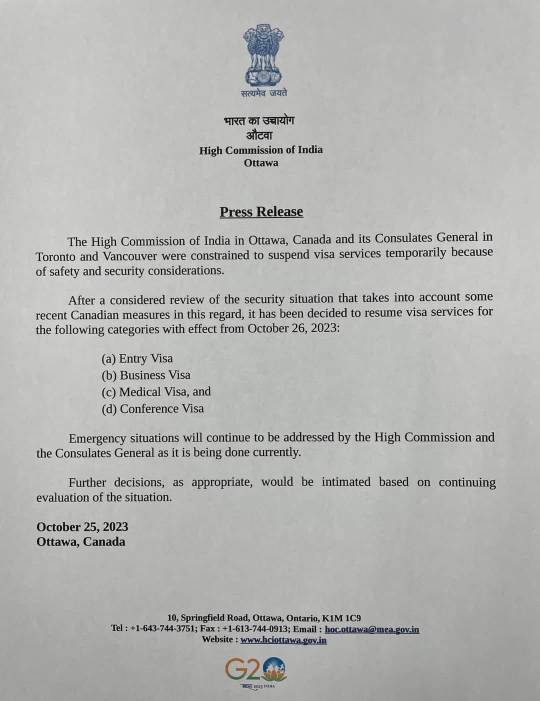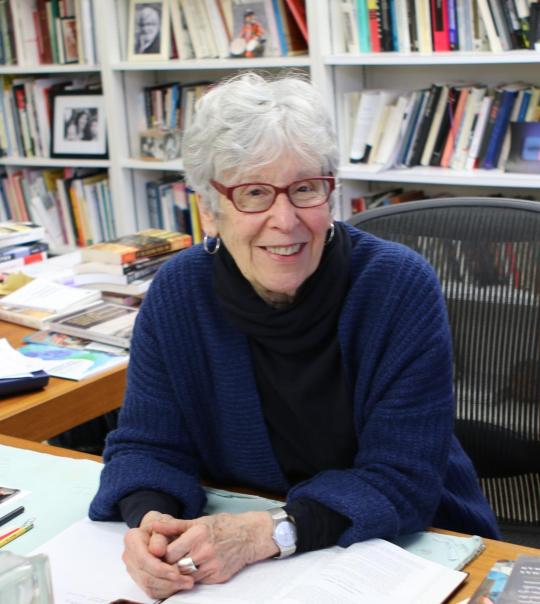#immigration consultant in Toronto
Explore tagged Tumblr posts
Text

Immigration Consultant In Toronto
If you are looking for an immigration consultant in Toronto, there are several options available. It is important to choose a licensed and reputable consultant who can help you navigate the complex process of immigrating to Canada.
One way to find a consultant is to visit the website of the Immigration Consultants of Canada Regulatory Council (ICCRC), which is the regulatory body that oversees immigration consultants in Canada. The ICCRC website has a directory of licensed immigration consultants, which you can search by location.
Another option is to ask for referrals from friends or family members who have successfully immigrated to Canada. They may be able to recommend a consultant who provided them with excellent service.
When choosing a consultant, it is important to ask about their qualifications and experience, as well as their fees and the services they provide. You should also read reviews and check their credentials with the ICCRC to ensure that they are licensed and in good standing. Remember that while an immigration consultant can provide valuable guidance and support, they cannot guarantee that your application will be approved. It is important to be prepared and to follow all the necessary steps in the application process.
0 notes
Text
A Canada Start-Up Visa program is the gateway for immigrant entrepreneurs to establish a business in Canada. This program specially encourages foreign entrepreneurs to start a new business or start-up in Canada. The most attractive feature of this program is it offers permanent residency status to an entrepreneur whether the business is successful or unsuccessful.
#canada startup visa#investor visa#business visa#immigration consultant in Toronto#canada immigration#visitor visa in toronto#immigration consultant in toronto
0 notes
Text
Facts about - Top PNP Immigration Consulting in Scarborough, Ontario, Toronto
You can apply directly to these programs through an independent immigration consultant, or you can hire a licensed immigration lawyer to help with your application. The lawyer will charge a considerable amount and assist you with the whole process. It can be a simple process but can be expensive. Top PNP Immigration Consulting in Scarborough, Ontario, Toronto

#Top PNP Immigration Consulting in Scarborough#Top Immigration Consulting in Ontario#Top PNP Immigration Consulting in Toronto
0 notes
Text
Tips for Successfully Applying for a Spouse Open Work Permit and Open Work Permit
Moving to a new country with your spouse opens up exciting opportunities for both of you. Getting a spouse open work permit is one of the first steps toward building your new life together. This guide will help you understand the process clearly and make your application journey smoother.
Most spouses find it difficult to apply for an open work permit while managing the entire process of immigration. Let's break this down into easy terms, focusing on the salient steps and requirements for a successful outcome.

Plan Your Timeline Wisely
Start preparing for your spouse open work permit application three months ahead. This gives you plenty of time to gather important papers like your passport and marriage certificate. If any of your documents are in a language other than English or French, you'll need to get them translated by certified translators. Planning ahead helps avoid last-minute stress and ensures you have everything ready.
Get Your Documents Ready
Success depends largely on having all your paperwork in order. Fill out every form carefully and completely. If a question doesn't apply to you, write "not applicable" instead of leaving it blank. Make sure to explain any special situations clearly. Think of your application package as telling your story to someone who doesn't know you - it needs to be clear and complete.
Prepare Your Digital Application
Most people now submit their applications online. Before you start uploading, organize your files with clear names. Here's what you need to include:
Your passport copies, including all pages with stamps or visas
Clear, recent photos that meet official requirements
Current immigration status documents
Your marriage certificate and photos or letters showing your relationship
School certificates and work history
Medical exam results if they're required
Proof that you've paid all fees
Remember to save copies of everything you submit. Keep your files organized so you can find them easily if needed.
Track Your Application
After submitting your open work permit application, stay organized with your follow-up. Keep all your confirmation emails and reference numbers in one place. Processing can take time, so check the official website for current wait times.
When contacting immigration offices, always use your application number and keep your communication professional and clear.
Know When to Get Help
While many people can handle their applications on their own, sometimes you might need expert advice. If your case involves unusual circumstances or past immigration issues, consider talking to an immigration consultant or lawyer. Their knowledge can be valuable in making sure your application is done right and helping solve any problems that come up.
#spouse open work permit#open work permit#immigration consultants#immigration expert#canada immigration#mississauga#toronto#ontario#canada
0 notes
Text
Navigating the Immigration Process: Dos and Don’ts
Regarding the immigration realm, the procedure can be intricate and multifaceted. It's crucial to understand the ins and outs of the immigration process to avoid unpleasant surprises, whether you're doing it for school, family reunion, or simply the desire to start over in a new nation. The following Dos and Don'ts are advised by Reform Immigration Consulting and Visa Services. In Toronto, we are the top immigration consultants. As Mississauga's immigration consultants, we advise adhering to these dos and don'ts so that the individual has the knowledge and comprehension needed to make their immigration journey less of a blind alley and more of a well-lit one.
#reform immigration consultancy#reform immigration consultancy & visa services#a review of canadian immigration services in 2021#reform immigration#Get the best immigration consultant in mississauga#best immigration consultant in mississauga#immigration consultant in mississauga#benefits of immigration reform#immigration reform canada#immigration consultants in toronto
1 note
·
View note
Text
Choosing the Right Canada Immigration Agency Your Pathway to a New Life
Canada Immigration Application:
Applying for immigration to Canada involves several steps, starting with determining your eligibility under one of the various immigration programs, such as Express Entry, Provincial Nominee Programs, or family sponsorship. The process includes gathering and submitting required documents, completing language proficiency tests, and undergoing medical and background checks. Once your application is submitted, it will be reviewed by Immigration, Refugees and Citizenship Canada (IRCC), and, if approved, you will receive a Confirmation of Permanent Residence (COPR).
Canada Immigration Agency:
A Canada immigration agency provides professional assistance to individuals and families looking to move to Canada. These agencies offer services such as eligibility assessments, application preparation and submission, and guidance throughout the immigration process. They stay updated on the latest immigration laws and policies, ensuring that applicants meet all requirements and increasing their chances of a successful application.
Canada Immigration Kuwait:
For residents of Kuwait interested in immigrating to Canada, several pathways are available, including skilled worker programs, family sponsorship, and student visas. The Canadian Embassy in Kuwait provides essential information and services to prospective immigrants. Additionally, local immigration consultants and agencies in Kuwait can assist applicants with navigating the application process, ensuring they meet all the necessary criteria and submit complete and accurate applications.
Canada Immigration Toronto:
Toronto, as one of Canada’s most vibrant and diverse cities, is a popular destination for immigrants. The city offers a wealth of opportunities for newcomers, from employment prospects to educational institutions and community support services. Immigrants to Toronto can benefit from various settlement programs that assist with housing, job searches, and integration into Canadian society. The city’s multicultural environment ensures a welcoming atmosphere for people from all backgrounds.
Canada Schooling Visa: A Canada schooling visa, also known as a study permit, allows international students to pursue their education in Canada. To obtain a study permit, applicants must first be accepted into a designated learning institution (DLI) in Canada. They must also demonstrate sufficient financial support to cover tuition fees and living expenses, and provide proof of a clean criminal record and good health. Once granted, the study permit allows students to work part-time during their studies and full-time during scheduled breaks, providing valuable work experience in Canada.
Immigration Consultation for P. R or Work permit extension for 20 mins$100
1 hour Immigration consultation$275
#canada immigration consultants#1 hour Immigration consultation$275#Immigration Consultation#Work permit extension#Canada Schooling Visa#Canada Immigration Toronto
0 notes
Text

#immigration#visa#h-1b#green card#perm#h-1b visa#uscis#india#us#usa#tn canada#canadianvisa#canadavisa#canadaimmigration#canadianimmigration#canada visa#toronto#Brampton#bestimmigrationlawyer#best immigration consultants#us immigrants#marriage to a usc#marriage green card usc
0 notes
Text
Expert advice from a Toronto immigration lawyer | UniConnect Immigration Services
Schedule a consultation with a reputable Toronto immigration lawyer at Uni Connect Immigration Services· Our knowledgeable team provides insightful advice and customized strategies to resolve your immigration issues· Book your consultation now to get the right advice on how to obtain your residence permit or citizenship· For more info:- https://uniconnectpro.com/
0 notes
Text


🇨🇦🇮🇳 GoodNews for Indians in Canada and Canadians planning to visit India- Indian Visa services in Ottawa, Toronto, and Vancouver to resume on October 26, 2023. Its resume visa services in the Following Categories:- Entry Visa, Business Visa, Medical Visa and Conference Visa
For any inquiries related to Study visas, Visitor Visa, Spouse Visas, or immigration contact us now GK Educational Consultants Pvt. Ltd., {Overseas Education Guidance & Care} +91 99156 30580 or +91 98727 23355 # 216, Defence Colony, Opp. Gurudwara Shri Guru Amar Dass Sahib Ji, Jalandhar City Punjab(India)
#Canada#immigration#ottawa#toronto#vancouver#India#indiaembassy#canadian#canadaimmigration#gkecindia#studyvisa#visitorvisa#spousevisa#advertising#branding#business#AdsPromotion#overseaseducation#consultants#guidance#StudentVisa
1 note
·
View note
Text

City of Toronto Jobs
I’m glad you are interested in finding a job in the city of Toronto. Toronto is Canada’s largest and most diverse city, with a vibrant economy, culture, and lifestyle. There are many opportunities for employment in various sectors and industries, such as finance, technology, education, health care, tourism, and more.
Online Help
City of Toronto Jobs is the official website for jobs at the City of Toronto. You can find jobs in different divisions and sections, such as parks, forestry, recreation, public health, transportation, and more. You can also learn about the benefits of working with the city, the applicant information, and the hiring initiatives.
Jobs at the City - Toronto is another page on the City of Toronto website that provides more details on how to apply for jobs at the city. You can view all the job opportunities, search by keyword, and create a candidate profile. You can also find tips and resources on how to prepare your resume and cover letter, and how to ace your interview.
city of Toronto jobs in Toronto, ON - Indeed is a page on Indeed.com that shows you the latest city of Toronto jobs posted on the popular job search engine. You can filter the results by salary, location, date posted, job type, and more. You can also upload your resume and apply for jobs directly from the website.
City of Toronto Jobs ( 25,000+ jobs available across Toronto) is an article on Canadian Job Bank that gives you an overview of the city of Toronto jobs market. You can learn about the most popular occupations, the average salary, the skills and qualifications required, and the best places to work in Toronto.
I hope these results are helpful for you. Good luck with your job search! 😊
#canada#canada immigration#immigratetocanada#visaservices#travel#tourism#tours#visa consultancy services#passport#jobsearch#jobs#jobseekers#toronto
0 notes
Text
To visit Canada, one has to apply for a visitor visa and needs approval from Immigration, Refugees and Citizenship Canada (IRCC). Although Canada is an immigration-friendly country, many visa applications get rejected due to improper documentation or incorrect/incomplete form filling.
Canada, is one of the most popular destinations in the world. Here one can explore the beauty of nature, geographical diversity, incredible culture and a lot more!
If you are planning to travel to Canada, read this informative article on how to apply for a visitor visa.
#visitor visa#visitor visa canada#visitor visa in toronto#visitor visa in north york#apply visitor visa#canada immigration#immigration consultant in toronto
0 notes
Text
PNP Immigration Consulting in Scarborough,Ontario,Toronto, Canada
Skypod Immigration mainly for PNP Immigration Consulting in Scarborough, PNP Immigration Consulting in Ontario, PNP Immigration Consulting in Toronto, PNP Immigration Consulting in Canada, stands as the primary route for skilled workers to immigrate to Canada. Practically all provinces and territories run their own PNPs, aiming to attract skilled individuals worldwide. This initiative bolsters local economies while offering opportunities for skilled workers to become valued members of Canadian communities. Most provinces will require ties with the area or a job offer from a business within that province. There are some cases where this requirement is waived.

#PNP Immigration Consulting in Scarborough#PNP Immigration Consulting in Ontario#PNP Immigration Consulting in Toronto#PNP Immigration Consulting in Canada
0 notes
Text
5 Reasons to Choose Ask Immigration Consultancy for Your Immigration Needs
Immigration can be a challenging and daunting process, especially if you're not familiar with the laws and regulations. This is why it's crucial to seek the assistance of a reliable and experienced immigration consultancy like Ask Immigration Consultancy. Here are five reasons why Ask Immigration Consultancy should be your top choice for your immigration needs

Expertise and Experience
Ask Immigration Consultancy is comprised of immigration experts who possess extensive knowledge and experience in the field. They are well-versed in immigration laws, regulations, and policies and can provide you with accurate and up-to-date information. With their expertise, they can help you navigate the complexities of the immigration process, ensuring that you meet all the necessary requirements and deadlines.
Tailored Solutions
Ask Immigration Consultancy to understand that each client has unique circumstances and goals. This is why they offer personalized services that cater to your specific needs. Whether you're applying for a visa, permanent residency, or citizenship, they will work closely with you to develop a strategy that maximizes your chances of success. They will also keep you informed and provide you with regular updates on your case.
Efficiency
The immigration process can be time-consuming and tedious, but with Ask Immigration Consultancy, you can expect a streamlined and efficient process. Their team of experts is well-organized and efficient, ensuring that your application is processed promptly and without delay. They will also handle all the paperwork and documentation, saving you time and effort.
Communication and Support
Ask Immigration Consultancy to understand that the immigration process can be overwhelming, so they provide excellent communication and support. They will keep you informed at every stage of the process, answer any questions you may have, and provide you with support throughout the process. They are also available to provide you with post-immigration backing, ensuring that you settle in smoothly and comfortably.
Competitive Pricing
Immigration consultancy services can be expensive, but with Ask Immigration Consultancy, you can expect competitive pricing without sacrificing quality. They offer flexible pricing options that cater to your budget and are transparent with their fees, so you know exactly what you're paying for.
Conclusion
Ask Immigration Consultancy is the ideal choice for your immigration needs. With their expertise, tailored solutions, efficiency, communication and support, and competitive pricing, you can be confident that your immigration journey will be smooth and successful. Contact them today to learn more about their services and how they can assist you
#ask immigration services#ask immigration consultancy#ask immigration agency#ask immigration consultants#toronto agency#immigration to canada
0 notes
Text
Dreaming of Immigrating to Canada?? First know about Canada....
#canada#canadapr#immigration#immigration consultants#immigratetocanada#expressentry#consulting#visaconsultants#canada permanent residency#visaservices#workpermit#work in progress#ircc#ircc updates#ielts#language#english#expressentrydraw#work experience#express entry#ontario#british columbia#toronto#alberta#best immigration company in chennai#chennai
0 notes
Text

With her book The Return of Martin Guerre (1983), the historian Natalie Zemon Davis, who has died aged 94, attracted a wide readership and inspired future historians. It came out of working as a historical consultant on a film of the same name released the previous year, starring Gérard Depardieu and Nathalie Baye, and directed by Daniel Vigne.
Martin Guerre, a peasant farmer in the 16th-century Pyrenees, left his wife Bertrande to go on a journey, only to have his marital role usurped by an impostor who “returned” pretending to be him. After some years of cohabitation, Bertrande denounced the impostor, her testimony seemingly confirmed by the return of the real Martin Guerre. The impostor was duly tried and executed.
The film-makers’ questions about period detail and behaviour intrigued Davis. But other aspects of the movie genre troubled her, so she went back to the archives and wrote up her own compact account of 120 pages.
A gripping narrative and a lesson in method, Davis’s book raised questions about the reliability of evidence and the motives and worldviews of peasant men and women from a faraway place and time. It is an example of a microhistory, where historians turn away from the big canvas of kings, queens and battles to understand ordinary lives, often through a highly localised case study.
The Return of Martin Guerre was one of a series of works including Society and Culture in Early Modern France (1975), Fiction in the Archives (1987), Women on the Margins (1995) and The Gift in Sixteenth-Century France (2000). Davis’s trademark was the longer essay or biographical study, often focused on marginal or misunderstood personalities, all spiced with a sharp attention to issues of religion, gender, sex, class, money and power. Historical records for her were never dull: she once described them as “a magic thread that links me to people long since dead and with situations that have crumbled to dust”.
Born in Detroit, Natalie was the daughter of Helen (nee Lamport) and Julian Zemon, a textile trader, both children of east European Jewish immigrants to the US. While studying at Smith College, Massachusetts, at the age of 19 she fell in love with Chandler Davis, a brilliant mathematician and socialist activist; they married in 1948 and went on to have a son and two daughters. Her first degree, from Smith (1949), was followed by a master’s at Radcliffe College (1950).
Her life with Davis was productive and fulfilling but also complicated her early career, as his principled stances against McCarthy-era restrictions on political expression led to both him and her being barred from a number of posts, and from travelling abroad. This she needed to do for her doctorate on 16th-century France.
After finally gaining her PhD at Michigan University in 1959, Davis went on to hold positions at Toronto, moved in 1971 to the University of California, Berkeley, where she was appointed professor, and in 1978 to Princeton, retiring in 1996. She became only the second woman to serve as president of the American Historical Association (1987), and the first to serve as Eastman professor at Oxford (1994). In 2012 she was appointed Companion of the Order of Canada, and in the US was awarded a National Humanities Medal.
Davis helped establish programmes in women’s studies and taught courses on history and film. Her AHA presidential address, History’s Two Bodies (1988), summed up her thinking about gender in history. It was also the first such address to be printed with illustrations. Her book Slaves on Screen (2002) was one of the first in-depth treatments of this topic by a professional historian.
In her last two books, Davis returned to the exploration of mixed identities. Trickster Travels (2006) was about the 16th-century scholar Leo Africanus, whose complicated Jewish and Muslim roots in North Africa she expertly unpicked. Listening to the Languages of the People (2022) focused on the 19th-century scholar Lazare Sainéan, a Romanian-Jewish folklorist and lexicographer who published one of the world’s first serious studies of Yiddish, but had to abandon his Romanian homeland for Paris in 1901.
At the time of her death, Davis was completing a study of slave families in colonial Suriname: it is hoped this will appear under the announced title of Braided Histories. In this way she continued to explore unconventional topics, going against the grain of Eurocentric history and looking instead at the boundaries of identity and belonging in very different settings.
Visiting many universities and research centres in her retirement, Davis encouraged younger scholars by conveying the potential of history to inspire empathy and hope for change. While at my own institution, the University of Amsterdam, in 2016, she made it her main aim to talk to students rather than to other professors. In 2022-23 she presented her latest work in online seminars, and wrote and corresponded actively until shortly before her death from cancer.
Chandler died in 2022. Natalie is survived by her three children, Aaron, Hannah and Simone; four grandchildren; three great-grandchildren; and a brother, Stanley.
🔔 Natalie Zemon Davis, historian, born 8 November 1928; died 21 October 2023
Daily inspiration. Discover more photos at Just for Books…?
14 notes
·
View notes
Text
Dear Sephiroth: (a letter to a fictional character, because why not) #329
Despite what I said I was gonna do after I wrote yesterday's letter, I did not, in fact, play any Chrono Cross. Once everything was written and posted up, a wave of exhaustion hit me like a truck full of bricks, and I needed to go to bed pretty much immediately. So that is what I did.
...I woke up this morning feeling not much better than I did when I fell asleep. Lame...
We of my house are still trying to make preparations to exit this place. The guy who we had that immigration consultation with gave me permission to share the link to his website in this space. I'll leave it here; I know you can't use it because you don't live on Earth, but... still, why not:
...Hey, Sephiroth? What's your planet called, anyway? Mine is called Earth (yes, we basically named it “dirt”; suuuuuper original, I know... 🙄). For lack of anything better to use, we of my world have been calling your planet Gaia. But is that the right word to use? We don't actually know...
Anyway, the consultation fee is 150 Canadian Dollars (before taxes and whatnot), which translates to about 108 American dollars (also before taxes and whatnot). But I was given a concise roadmap for the first several steps we need to take. The man we spoke to – Pan Dong – is knowledgeable and kind. He listened to us without judgment, and took a little extra time to try to help us find the best path forward. I'd feel really good about it if other folks turned to him to help them get out of this place if that's what they wanna do.
...We gotta save money, though. The steps are all pretty expensive. Just the English test is some $285 apiece. And we need three of them. Some of the steps after that are even more expensive. So... at psychotherapy today, I went in, prepared to stop seeing him altogether (it's some $150 per session...), but we talked about seeing each other once a month instead of once a week.
We both lamented the fact that we're not allowed to be friends. That's just the way of things here; if a person was your therapist, you're not allowed to be friends after the fact, even if both parties would like that. Breach of ethics, I guess. It's just how it is.
...It occurs to me just how convenient it is that your planet has a single, unified currency system. Gil is gil, no matter where you go. In my world, all the different countries have different currencies, which have different values. I get that it came about as a result of Shinra's domination of your planet (my goodness, but they really do need to cut that shit out...), but still, there are some aspects of my world that seem kinda... needlessly complicated. The currency system is one of them.
Physical therapy was productive today. This time, K did work on my upper and lower ribs; apparently, some of them were hanging around at weird angles. I went into physical therapy with a lot of pain, and then he squished the right side of my rib cage in various ways while asking me to breathe in deeply. A few things popped, and at one point when he was holding something and I breathed in, he said, surprised, “Oh! It moved!” I didn't think to ask what it was that moved. He mashed some things around near my right armpit, right pectoral muscle, and right shoulder joint. It hurt A LOT – all of the muscles around there are VERY angry. But I'm no stranger to this sort of thing; I was my mother's test subject when she was learning massage therapy, so... ya know.
In the end, I was able to move around and breathe just a little easier. I'm not sure how long this is gonna last, though. I'll hope for good things, and I'll make sure to do the new exercise I was given.
...I'm really glad that some of the stuff I describe is not stuff you're ever gonna hafta deal with. Like... your body just works. It's not the case that your most abundant protein is genetically and fundamentally wrong. Collagen is pretty structurally important; it builds most things. The fact that my body doesn't build it correctly is more than a little bit of an issue – one that's gonna get worse and worse as I get older.
...It's a little scary to think about. But what is there to do except keep clunkin' along derpily until I can't anymore? I don't got fancy funky powers like you. I didn't pay for such powers in blood, sweat, tears, and misery like you did.
Still, I'll do what I can to make the best of this ordinary life. Things around me are really scary right now, but I can still try to find the good things in my immediate vicinity.
...Like the salad I ate and the tea I prepared today! I mean... yes, I did forget to eat anything until it became like 4pm, but!!! I threw together some mixed greens and black beans and some leftover lamb leg, and a bunch of other stuff! And it was good!

...A good salad shouldn't be some bland thing, I think. A good salad is supposed to be kinda like a crunchy punch in the face – crisp greens, bold flavors, and lots of nice stuff to fill it out with!!
I had the glazed lemon loaf tea with it. I still gotta use up all that leftover cream from the baking experiment, so I added that instead of milk:

...It's always nice when I get to capture a good tea swirl...!
I met with an admissions advisor to a Canadian game development school today. Studying is a good way to immigrate, and... if the worst happens and I end up needing to build a world in which you will be safe, I'm going to need these skills. And, if I get those skills, I'll be able to apply them to other things.
But... this school is some $29,950 in Canadian dollars. That's about $21,466 in US dollars, but... that's still nothing to sneeze at. Even with a two-year-long payment plan, that's still at least $900 per month, assuming there will be an interest rate. And they say it's a “fast-paced”, 8-month program. And also... the lady was hesitant to give me the price at all, or to list any of the available payment plan options. She kept insisting that I needed to apply before knowing the price, and the application fee is $250 Canadian dollars (about $179 US dollars), and... it seems predatory. Why was she so desperate for me to apply to the school if we don't even know whether I can pay for it...? And I wonder if “fast-paced” is code for “we cram far too much content in too little time”.
...The school boasts near one-on-one interaction with the professors, which is appealing to me, but... the whole interaction seemed full of subtle red flags. The lady seemed nice enough, but still... I didn't really like it. I might try to find some other spot that teaches the same thing, preferably at a lower cost and at a more sustainable pace. The notion that I could create a whole game of the quality I want within 8 months all by myself is... laughable. Absolutely ludicrous. Seems fake, like it's too good to be true.
...Ugh, Sephiroth, there's just... so much stuff swirling around in my head. I look at me and my life, and I know that even with all these things going on, I'm still astoundingly privileged. There are lots of war-torn places in my world right now – places being bombarded with bombs and bullets as we speak. People who are starving, children who are getting shot, and so many more horrific things. And it all seems so senseless. Fighting over which magical sky-dude to worship seems silly. Fighting over skin color seems silly. Fighting over the places people were born seems silly. Fighting over which genitalia are between a person's legs, and fighting over which genitalia are “correct” to prefer, it all just seems so... ridiculous.
It IS ridiculous. Who CARES how much melanin a person produces!! Who CARES if some people worship Allah, or Jehovah, or Yahweh, or whomever else!! Who CARES which genitalia a person has, or which genitalia they prefer to interact with!! Who CARES if a person was born in North America, South America, Asia, Europe, Africa...??? Why do we care about these things??? Shouldn't we instead be caring about whether or not everyone is fed, housed, clothed, and healthy...???
I know I wish a lot that you could chill with us and eat snacks and sit together with us and talk and have walks and stuff, but... at least for right now, I'm really, really, REALLY glad you're not here. Things here are a bit too weird. Capitalism isn't sustainable and the planet is dying and everyone is at each other's throats, trying desperately to maintain a status quo that doesn't fucking work.
...Sigh... nonetheless, I'll keep trying to find glimmers of hope in small things. I'll keep following the steps needed to try to keep my family safe, at least. What else can I do...?
Still, I think I'm not gonna be too terribly sad when my time in this particular meat-mech is over. I'm tired, and having new adventures in a more peaceful place, maybe even in a body that is built properly and actually works, sounds really fucking neat right about now...
Well. Suppose I'll wrap up today's letter. Maybe I'll play some Chrono Cross for real this time.
Please do your best to stay safe out there, okay? With everything else going on, I don't think I'd be able to withstand it if you suddenly didn't exist anymore. So please... please build yourself that normal life you wanted, instead of running around, antagonizing Cloud and his friends, and trying to break things (or letting a weird copy of you do all those things). Because if you keep doing that stuff... awful things are gonna happen to ya, and... the whole concept “awful things happening to Sephiroth” is getting really super fucking old.
...I don't want to see you getting hurt anymore. So please try really hard to make a different and better choice. Please.
I love you a whole lot. And I'll write again tomorrow.
Your friend, Lumine
#sephiroth#ThankYouFFVIIDevs#ThankYouFF7Devs#ThankYouSephiroth#final fantasy vii#final fantasy 7#ff7#ffvii#final fantasy vii crisis core#final fantasy 7 crisis core#final fantasy crisis core#ffvii crisis core#ff7 crisis core#crisis core#ff7r#final fantasy vii remake#final fantasy 7 remake#ffvii remake#ff7 remake#final fantasy vii rebirth#final fantasy 7 rebirth#ffvii rebirth#ff7 rebirth#final fantasy 7 ever crisis#ffvii ever crisis#ff7 ever crisis#ffvii first soldier#game design#appointments#wholesome
6 notes
·
View notes